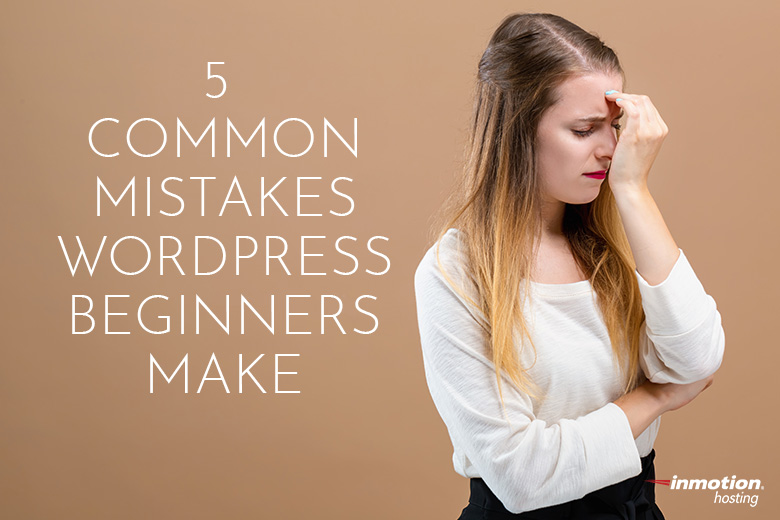
With about 19 million users worldwide, WordPress is by far the most popular website creation tool out there. People love the quick and easy installation and setup and the near endless customization options.
Despite it’s ease-of-use, though, if you’re to it, you’re bound to make some mistakes. It doesn’t have anything to do with your level of skill or your competence – there’s a learning curve to everything.
To help you get started on the right foot, we’ve put together a list of the mistakes we see most frequently. Take a look before you set up your first website and go into the process armed with some serious knowledge.
Let’s get going!
Confusing WordPress.org vs. WordPress.com
Did you know that there are two different iterations of WordPress? Many people don’t, and as a result, end up choosing the wrong platform. Here’s the difference:
- WordPress.org is a free, open source content management system. You have to download the software and set it up with your own hosting provider.
- WordPress.com is a hosted website platform. You don’t have to download any software or manage a web server. But it comes with a loss of certain freedoms.
Both have pros and cons, depending on what you’re looking for. They include (but are certainly not limited to):
WordPress.org Pros:
- You have more control and flexibility and create absolutely any kind of website you want
- You can create and use your own domain name
- You can upload custom themes and plugins and use custom code
WordPress.org Cons:
- You have to download the software and install it on your server
- Domain registration and hosting plans mean it will never be completely free to use
- You are responsible for your site’s security and maintenance
WordPress.com Pros:
- You don’t have to find or pay for your own hosting
- No need to manage your own web server
- User-friendly and easy-to-use
WordPress.com Cons:
- Your domain will, by default, include “wordpress.com” unless you purchase a domain
- You can’t upload custom themes or plugins, or modify the PHP code behind your site
Adding Plugin After Plugin After Plugin
You may assume that because plugins add to the functionality of your site, having more plugins is a good thing – but that’s not necessarily true.
Most plugins are good and will improve your site, but before you go adding anything all willy-nilly, it’s important to do a little research. Take a look at when the plugin was last updated, whether it works with the latest version of WordPress, and read the customer reviews. If any red flags pop up, it’s best to avoid that plugin and find another. There are so many options available, it just doesn’t make sense to settle for a subpar product.
Not Having a Backup Plan
When it comes to your website, nothing is more important than running regular backups. In the event that you lose all of your data for some reason (like a virus or server failure), a backup will ensure that you can get back up and running again quickly, with little downtime. There are dozens of free backup plugins available through WordPress, but we put together a list of our favorites so you don’t have to do the research.
Ignoring Updates
We get it: updates can seem overwhelming. When you’re running a business and you have a million things going on, the last thing you want is another notification that something needs to be updated. But when it comes to your website, it’s worth it. WordPress updates usually provide patches to fix known security errors or bugs and if you ignore them, you’re leaving your site vulnerable to hackers.
If it’s something you truly don’t think you’ll be able to keep up with on your own, consider using a plugin that will do it for you.
Not Having a Contact Form
This one seems simple, but it’s SO important. The entire point of creating a business website is to attract new customers, right? Well, how are those potential customers supposed to reach you if you don’t have a contact form? Internet users are impatient, and they don’t want to dig around looking for information: if you don’t make your contact information clear, they’ll go find someone that does.
Final Thoughts
Now that you’re aware of a few of the basic mistakes newbies make, hopefully you can avoid them when creating your own WordPress site. If you’re still feeling iffy, or you’d just rather leave your site design to the pros, our design experts can have a new site up and running for you within a matter of days.
Correction: InMotion Hosting no longer offers free backups. However, you can now get the feature-rich backup manager service for an additional $2/month.